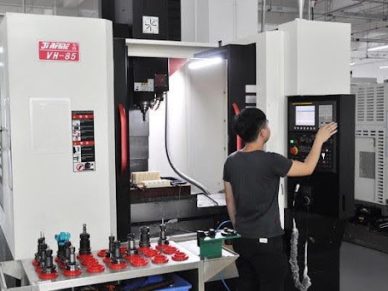
Owning a business requires hard work, determination, and knowing how to protect your company from certain liabilities. If your business sells goods, dangerous, or defective products can cause injuries to your customers and put your company at risk of lawsuits. This is where product liability comes into play and is an important topic for all business owners to think about.
What Is Product Liability?
Product liability refers to when sellers or manufacturers are held responsible and liable for putting a defective or dangerous product in the hands of a customer. Product defects are the responsibility of any person or entity involved in the chain of distribution. There are laws in place that require products to meet consumer’s ordinary expectations. If a product is sold and does not meet these ordinary expectations, it may lead to liability issues.
How Product Liability Affects Businesses
If a product liability claim is brought against a business, it can result in a lawsuit that could cost a substantial amount of money to fix. In some cases, product liability claims can result in damages to consumers worth millions of dollars. This is becoming more common with the increasing number of injuries and deaths resulting from products. Such claims against many businesses would be crippling. Because of this, it is important to understand the importance of product liability and finds ways to protect your business from claims.
Types of Product Defects Resulting In Product Liability Claims
When it comes to product liability claims, plaintiffs will need to provide proof that the product they purchased was dangerous due to defects. There are three main types of product defects consumers can use with a liability claim. These defects are common for causing injuries and significantly raise the risk of product liability with a supplier or manufacturer.
- Manufacturing Defects: These are defects caused during the assembly or manufacturing process of a product.
- Design Defects: These defects are found in products from the start, even before they get assembled or manufactured. There is an inherent design flaw that makes the product unsafe for consumers.
- Marketing Defects: Marketing defects include flaws created when the product is marketed. This can include insufficient instructions, improper labeling and inadequate safety warnings on how to use the product.
How Businesses Can Stay Protected Against Product Liability Claims
Businesses that supply or manufacture products or product components for consumers need to assume responsibility for ensuring the safety and care of use. There are many ways businesses can lessen their risk of consumer liability claims. Below are some top tips to take into consideration.
- Conduct Thorough Product Testing
Businesses should adopt continued and thorough product testing to help find any possible defects in the manufacturing, selling, or marketing of their products and components. Failure to adopt effective testing of products can result in negligence claims against a manufacturer. It can also lead to a recall of dangerous or faulty products.
Businesses need to be able to offer proof they took reasonable steps to ensure the safety of their products and implemented a safe and secure production process that included valid research and regular testing.
- Adequate Warnings On Dangerous Products
Businesses should take the necessary steps to provide effective and appropriate warnings on their product labels. This is crucial for the ability to sell any products deemed dangerous goods. Important disclosures on packaging can protect your business from unnecessary liability claims.
- Regularly Review List Of Suppliers
It is important for any business, retailer or distributor that makes changes or repairs to products or product components to put in place certain measures to regularly review the processes and procedures of their manufacturers. Businesses need to acknowledge and be comfortable with the components and products they receive from their suppliers.
Businesses can benefit greatly by securing legal contracts with their suppliers to confirm they will be held unaccountable for product liability claims stemming from the processes of manufacturers. Suppliers should be held financially accountable for any product defects found before supply.
- Obtain Product Liability Insurance
Another way businesses can help protect themselves from product liability claims is to take out insurance policies. Product liability insurance is not mandatory, but it can offer protection for any business that distributes or manufactures products. The insurance can cover compensation that may get awarded to a consumer for a defective product that resulted in injuries or death. The insurance can also help cover legal fees involved in the process.
It is essential for all business owners to fully understand how product liability affects their company. It can affect businesses of all sizes and is bound by state and federal laws put in place to protect consumers from faulty and dangerous products. Business owners must take the necessary steps to protect their company and assets from potential product liability claims and lawsuits.















Leave a Reply